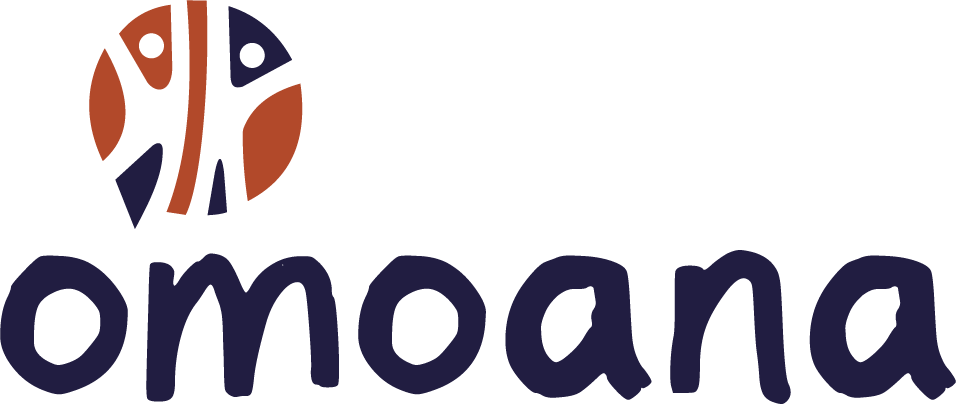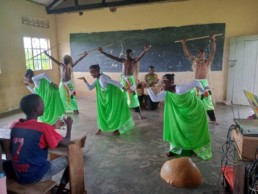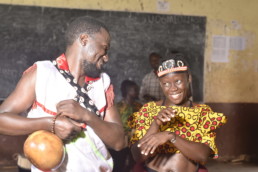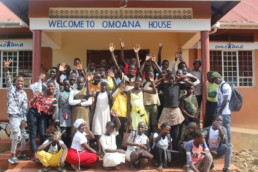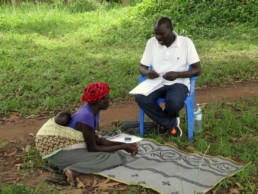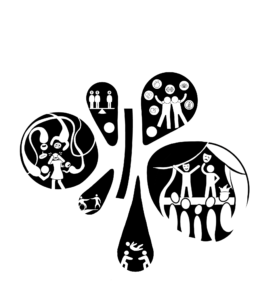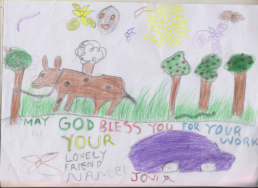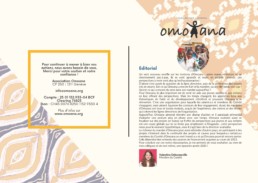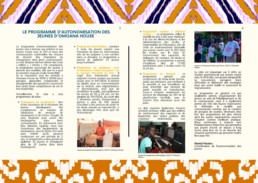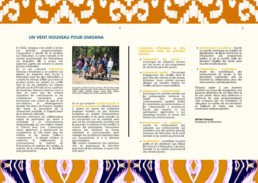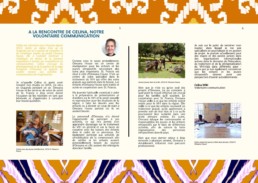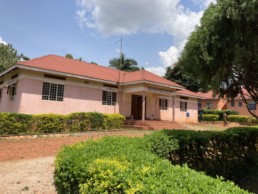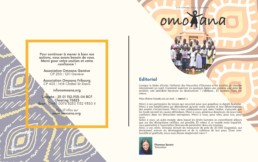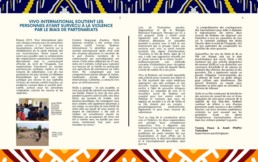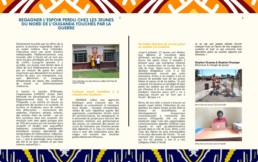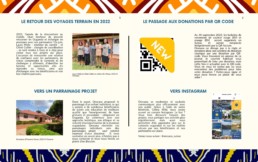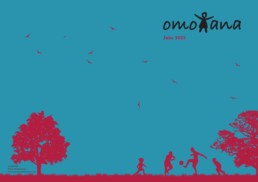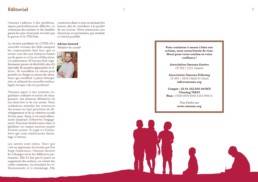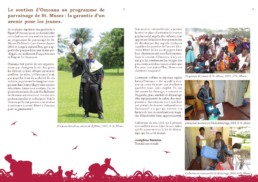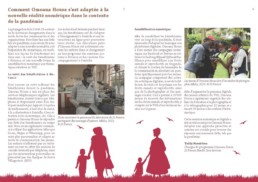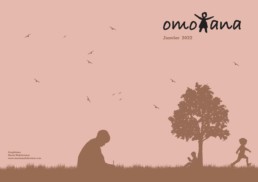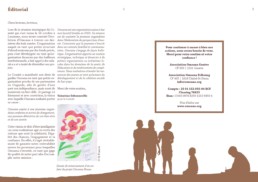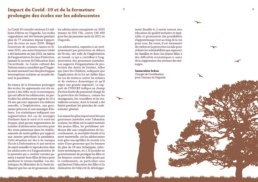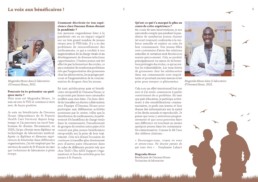Discover the Ugandan adaptation of Les Trois Cloches by Jean Villard
When people are born with HIV, society sometimes makes them believe that they will not be able to lead a normal life. However, if they are given the necessary means and care, they can live long and healthy lives, just like any other individual.
We are delighted to share the Ugandan version of Jean Villard’s song “Les Trois Cloches”, adapted by young people supported by Omoana, in which they talk about resilience.
Many thanks to Mukungu Enock Jonathan, Mutesi Sharon, Kasoga Winnifred, Nabiryo Esther, Hussein Fazil, Nyanzi Huzairu, Bazibu Micheal and Reagan Giriwa for this wonderful creation.
This video is part of a series adapted from our show Resilience, which had to be cancelled.
With the support of the Fédération Genevoise de Coopération.
Discover the Ugandan adaptation of Abbé Bovet's Old Chalet
We are delighted to share with you the Ugandan adaptation of Abbé Bovet’s song “Le Vieux Chalet”, on the theme of resilience in the face of HIV/AIDS.
Many thanks to Mukungu Enock Jonathan, Mutesi Sharon, Kasoga Winnifred, Nabiryo Esther, Hussein Fazil, Nyanzi Huzairu, Bazibu Micheal and Reagan Giriwa for this beautiful creation.
This video is part of a series adapted from our show Resilience, which had to be cancelled.
With the support of the Fédération Genevoise de Coopération and the City of Bulle.
20 years of achievements
It's time to take stock of the past few years:
10600
Direct beneficiaries
Have been reached
264
Children affected by HIV/AIDS
Have been welcomed and given individual follow-up to enable them to undergo medical and psychosocial rehabilitation
343
Scholarship
Have been financed
3244
Families
Have benefited from microcredit projects
5348
Families
Have benefited from agricultural training to help meet the basic needs of children in a sustainable way
1339
People
Most of them affiliated with armed groups during their childhood, have benefited from individual therapy to deal with trauma
282
Professionnals
Have received training on psychosocial issues
Thousands
Of people
Have been sensitized on issues relating to the inclusion of children living with HIV, people suffering from trauma and the prevention of gender-based violence.
116
People
Employees in Omoana projects since its creation
+5millions
CHF
Collected by the association to date
Discover the vivo Uganda mental health project on video!
Between 1986 and 2006, Northern Uganda was in the grip of a conflict between the Lord’s Resistance Army and the government.
60,000 children were kidnapped to be recruited as soldiers. Now adults, many of them still suffer from disorders linked to the trauma they experienced.
Using Narrative Exposure Therapy, our partner vivo Uganda and its counsellors are treating these disorders in order to contribute to the dignity of those affected and to peace in the Gulu region of northern Uganda.
Find out more about their work in video.
For further information, visit: Vivo Uganda
This video was made thanks to the support of the Fédération Genevoise de Coopération.
Developing social skills and preventing violence
Since September 2022, Omoana has been implementing a participatory process with his partners with the aim of improving their practice in psychosocial support and violence prevention with young people. This process aims to look at the lessons learned from past and current activities in order to propose improvements. It has taken place thanks to funding from the “Sharing Knowledge” fund of the Fédération Genevoise de Coopération (FGC).
Our partners in Uganda run activities to develop young people’s social skills. Improving self-confidence, communicating with friends, family and the community and managing emotions are all aspects of life that can be worked on to build resilience in the face of adversity. At several levels, our partners also address different types of violence that affect certain vulnerable groups of children and young people, whether physical, verbal, emotional or economic. Preventing discrimination against people living with HIV/AIDS, combating gender-based violence and raising awareness of the mental health condition of people formerly affiliated to armed groups are all specific issues that have been addressed for many years. Admittedly, our partners do not all work with the same population groups. However, the mechanisms of oppression are often the same. There is considerable potential for exchanging best practice when it comes to preventing and responding to violence of all kinds.
"Through discussions, games and exercises, these interactive sessions have been designed to help young people question their relationships with themselves and with others, so that they can develop their own resources in the face of adversity and see difference as an asset".
— Adrien Genoud, Director of Omoana
Developing social skills and preventing violence among young people
Creating interactive sessions for young people
Between September 2022 and January 2023, Omoana and its partners worked on technical sheets for conducting group sessions with young people on the following themes: Self-awareness- Self-confidence- Emotions- Stress management- Anger management- Conflict management- Mechanisms of discrimination- Trust- Collaboration- Healthy and toxic friendships- Social networks- Inclusion of people living with HIV/AIDS- Gender-based violence- Inclusion of people living with disabilities- Inclusion of people formerly affiliated to armed groups. The social workers and former beneficiaries, who are now active as mentors for other young people, have set up new sessions with the support of Omoana. In February 2023, they presented them to the other partners at a workshop. Using discussions, games and exercises, these interactive sessions were designed to help young people question their relationships with themselves and with others, so that they can develop their own resources in the face of adversity and see difference as an asset.
Testing solutions through Forum Theatre
During these workshops, participants also received introductory training in forum theatre. Forum theatre is an interactive technique that forms part of the Theatre of the Oppressed, developed by Augusto Boal in Brazil. It enables the creation and presentation of short scenes linked to social issues that expose a situation that needs to be changed. After an initial performance, the audience is invited to replace an actor on stage and try to change the situation, while the performance is replayed. Other actors respond by adapting their character, maintaining or adjusting their power of oppression or exploitation in relation to what has been changed. Forum Theatre offers a way of testing solutions through action. The audience makes and evaluates all the choices. During the workshop, the participants particularly appreciated this tool, which they will use in parallel as part of their activities with young people to address the social issues mentioned above.
This process finally led to the creation of the “Youth together” manual, which will provide partners with a framework for conducting sessions with young people. It will also make this new method deployable in other contexts and projects.
If you would like to receive the manual, please fill in the form at the end of the project page HERE.
Presentation of the Omoana House project in Esprit Solidaire
Following a visit to Uganda, Chloé Collier, our coordinator, was invited by Léman Bleu to record a programme on Esprit Solidaire, presenting our Omoana House project.
Watch the programme in full here.
